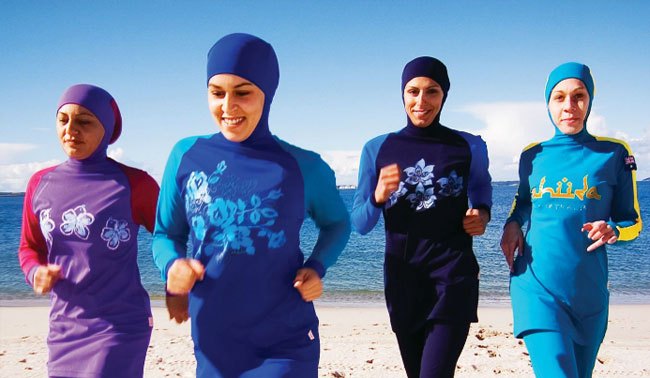Top French court betrays French values, validates burqini
Ravi Shanker Kapoor | August 27, 2016 1:06 am

France’s highest administrative court has erred grievously while lifting the ban on full-body burqini swimsuits, which were proscribed by the local authorities of several French towns, thus enraging Muslims. A burqini is a mix—semantically and factually—of burqa and bikini, designed for Muslim women.
Responding to a plea from the League of Human Rights to overturn the burqini ban in the Mediterranean town of Villeneuve-Loubet on the grounds it infringes upon civil liberties, the Conseil d’Etat said that the ban “seriously, and clearly illegally, breached the fundamental freedoms to come and go, the freedom of beliefs and individual freedom.”
Other towns had also proscribed burqini. For instance, the Cannes mayor’s ruling said, “Access to beaches and for swimming is banned to any person wearing improper clothes that are not respectful of good morals and secularism.” It may appear that this would delight the self-appointed custodians of secularism in India, but that’s not correct; like liberals all over the world, they decry anything that Muslims don’t like.
The Cannes mayor also ruled against burqini on grounds of public order, “Beachwear which ostentatiously displays religious affiliation, when France and places of worship are currently the target of terrorist attacks, is liable to create risks of disrupting public order.” Both reasons cited are perfectly valid.
But, unfortunately, the top court has found flaw with local rulings. Which, in a way, is not surprising, for judges operate in a socio-cultural milieu, and this milieu has been vitiated by the toxic effluents of multiculturalism, political correctness, and Muslim appeasement. It is difficult to disregard the newspaper articles that persistently perpetuate Muslim victimhood and spread the hoax called Islamophobia; it is also difficult to ignore the public intellectuals on television that who shamelessly promote retrograde practices for the sake of cultural relativism.
All these opinion makers, and many others, don’t realize that they end up serving the cause of jihad, for jihad is not necessarily a war. To use the corporate phraseology, it is not necessarily a hostile takeover; it can also take place by way of creeping acquisition. For instance, it took hundreds of years for Islam to spread in Iran. But once it becomes dominant in a country or region, it ensures the annihilation of other religions, cultures, civilizations. Just like an invasive species like hyacinth removes other forms of vegetation in a water body.
So, now jihad is worming its way into Europe—interestingly, using the ideals that it is determined to destroy. The ideals like freedom. So, Aheda Zanetti, the Sydney woman who is credited with creating the burqini, claims that it represents freedom and healthy living, not oppression. The 48-year-old Lebanese-Australian says that her intention was to facilitate the participation of Muslim women in the Australian beach lifestyle. Or, for that matter, European beach lifestyle. Okay, Muslim women can’t enjoy the freedom that is available to their European females, but burqini at least lets them enjoy the sea.
Interestingly, this argument has also found favor with many people who are otherwise not bewitched by political correctness. The main problem with this argument is that the acceptance of the burqini as unproblematic will makes the non-Muslim world more receptive to the Islamist abominations—not just the burqini but also the burqa. This will mainstream the creeping-acquisition mode of jihad.
Thankfully, prominent politicians have expressed their opposition to the burqini. Former president Nicolas Sarkozy has begun the 2017 presidential election with the demand for total ban against it all over France. “I refuse to let the burqini impose itself in French beaches and swimming pools… There must be a law to ban it throughout the Republic’s territory,” he said in a speech.
We should pray that leaders like him—the leaders who are against Islamism—win in Europe and elsewhere.































